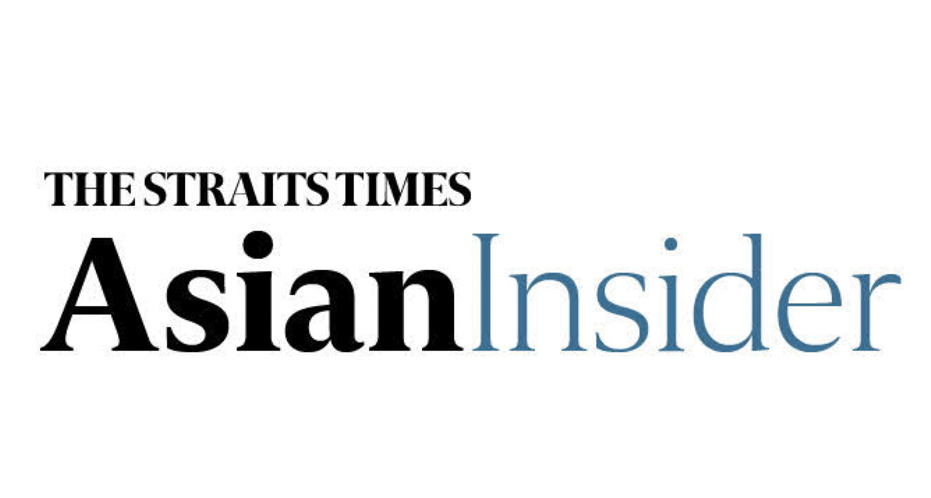Driving commercial and political engagement between Asia, the Middle East and Europe
Driving commercial and political engagement between Asia, the Middle East and Europe
Driving commercial and political engagement between Asia, the Middle East and Europe

12 November 2019
In today’s bulletin: The state government of Andhra Pradesh in India calls off an ambitious joint project with Singapore to develop a new state capital; how fake news is fanning the flames in Hong Kong; Alibaba’s bumper singles day sales; and more…
AMRAVATI CITY CALLED OFF

When the deal to build it was signed in 2014, Amravati city was envisioned as the gleaming new capital of the Andhra Pradesh state in India. Jointly developed with Singapore, it was to be the country’s first smart city. Then, in May this year, the man who was the driving force behind the idea, Chief Minister Chandrababu Naidu, got voted out of office. The project got mothballed by his successor, and has teetered on the brink until today, when it was officially put out of its misery. While Singapore and India say they mutually agreed to terminate the project, the episode mirrors an increasingly common phenomenon in world politics: where new governments feel little obligation to honour agreements signed by previous ones. There are also questions about the longer term future for Andhra Pradesh after it so readily gave up a potential source of economic growth.
See also: How the Amravati plan came about and what cancelling it means for Andhra Pradesh
ALIBABA’S RECORD DAY

November 11, known as singles day, proved to be a record-breaking one for Chinese online retailer Alibaba. On an occasion that has become something of an Asian version of Black Friday, the group chalked up more than 268 billion yuan (S$52 billion) in sales in the course of a single 24-hour period. It marked a 26 per cent rise in sales over last year’s 11.11 event and was especially noteworthy given the current investor interest in Chinese consumer sentiment. Alibaba was also keen to have a good day ahead of its rumoured upcoming share listing.
Background: Alibaba’s eyes $20 billion listing in late November
FAKE NEWS AND HONG KONG

Hong Kong’s already volatile state is currently being made worse by the addition of a potent polarising ingredient: fake news. In just the past day, rumours have been spread about police being ordered to fire at protesters at will, about authorities capping cash withdrawals and using emergency powers to shut schools and financial markets. There have also been recent rumours about police violence that sparked retaliatory strikes from protesters. Disinformation has been particularly effective in this situation because the months of unrest have eroded trust between protesters and authorities – meaning many are now more likely to reflexively believe stories of police brutality, no matter how strenuously the government might deny claims.
What you need to know about Hong Kong today:
China says stopping violence is the most important thing in Hong Kong
Hong Kong leader Carrie Lam says protesters ‘paralysing’ the city are selfish
Flash mob wreaks havoc in heart of Hong Kong financial district
Analysis: Beijing and Hong Kong – a political tug-of-war
PHILIPPINES ON HIGH ALERT AS IT PREPARES TO HOST REGIONAL GAMES

The Philippines is deploying close to 20,000 policemen, soldiers, first responders and traffic enforcers to secure the 30th South-east Asian Games it is hosting next month. Of particular concern is terror attacks, especially from groups that might seek to avenge the recent killing of ISIS leader Abu Bakr al-Baghdadi. Philippines is one of the South-east Asian countries where ISIS-linked groups are most active.
ISIS in the region: After Baghdadi death, South-east Asia expects long fight against ISIS influence
THE FORGOTTEN EPIDEMIC

A new report from Unicef is raising the alarm about the continuing threat to children of pneumonia, a lung disease that can be caused by bacteria, viruses or fungi. Pneumonia, despite being a preventable, treatable and easily diagnosed disease, killed 800,000 babies and young children last year – one every 39 seconds. But this isn’t a case of the anti-vaxxer movement reinvigorating another disease. More than half of the children who died of pneumonia came from poorer countries where access to vaccines is limited.
IN OTHER NEWS

Sam Rainsy: Cambodia’s self-exiled opposition veteran Sam Rainsymet Malaysian lawmakers on Tuesday (Nov 12) in a push to rally support in South-east Asia against authoritarian ruler Hun Sen just as the European Union considers withdrawing trade preferences.
Nigel Farage: British Prime Minister Boris Johnson’s election bid got a boost on Monday (Nov 11) when Brexit Party leader Nigel Farageannounced that his insurgent movement would not fight for the 317 seats won by Mr Johnson’s Conservative Party in the 2017 election.
Google: Alphabet Inc’s Google has signed its biggest cloud computing customer in healthcare to date, in a deal giving it access to datasets that could help it tune potentially lucrative artificial intelligence (AI) tools.
Australian bushfires: Tens of thousands of Australians took shelter on Tuesday (Nov 12) after the authorities warned that it was too late for them to leave their homes as bushfires raged across a vast area of the country’s east coast.
These insights are produced by The Straits Times, the official media partner for the Asia House Global Trade Dialogue, which took place in Singapore on 7 November 2019.
Reading this on the web or know someone who might enjoy receiving Asian Insider? The sign-up page is here
